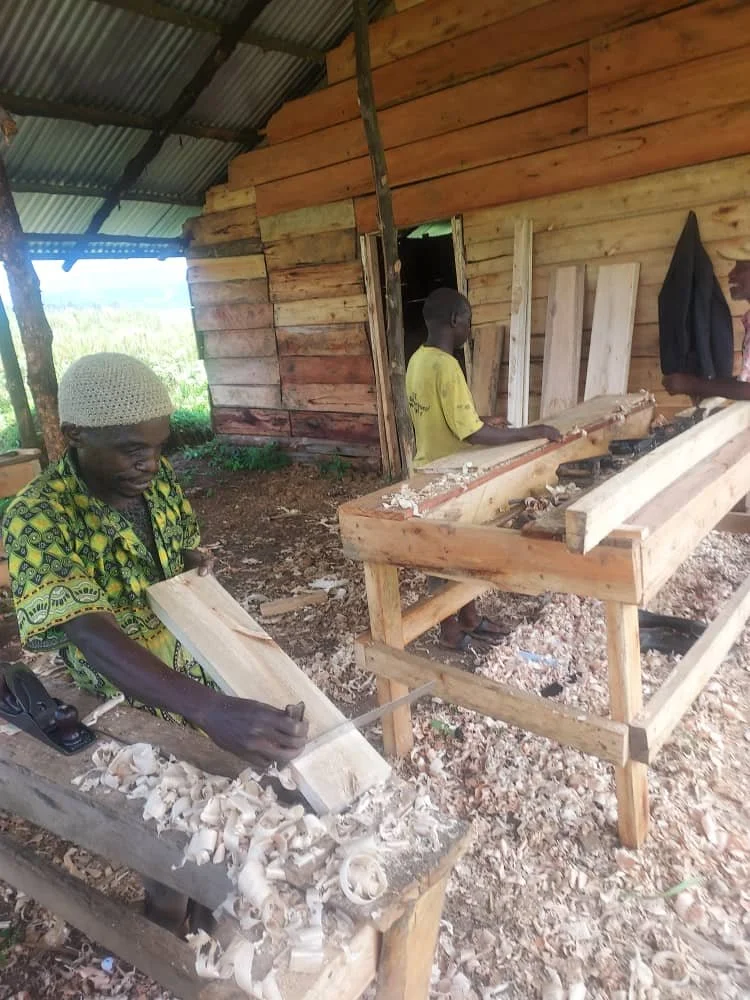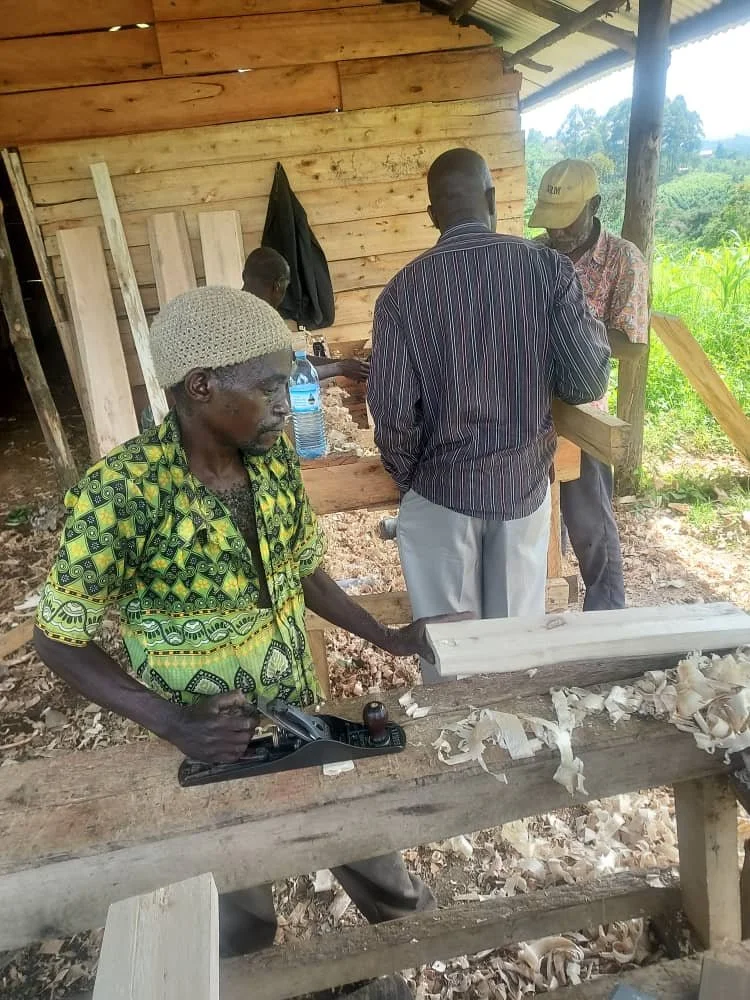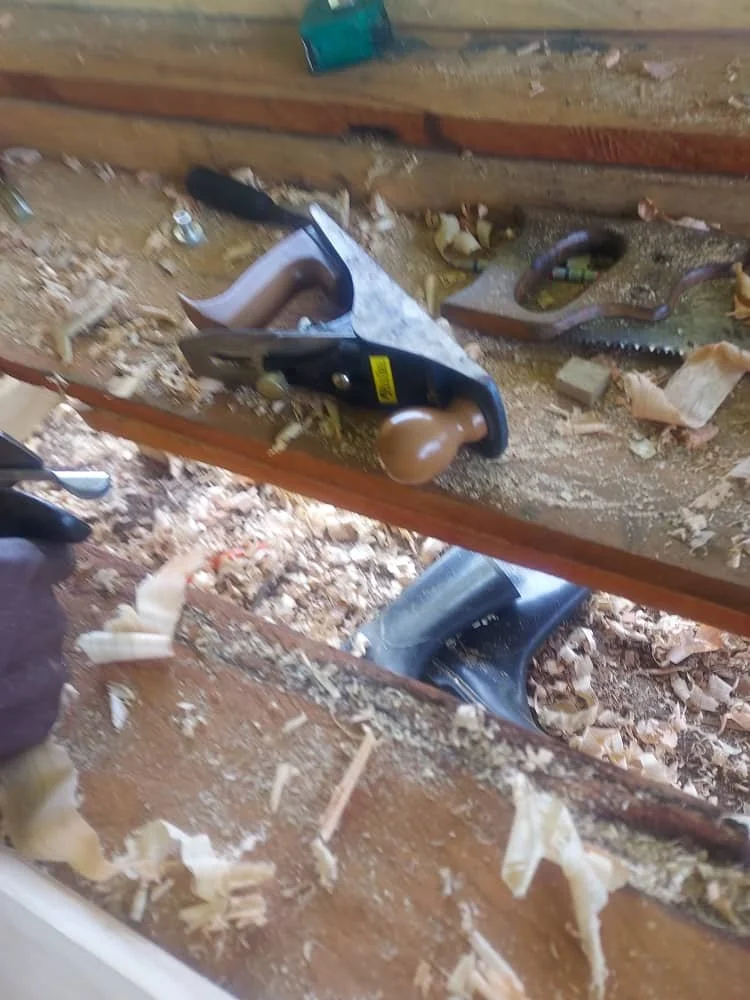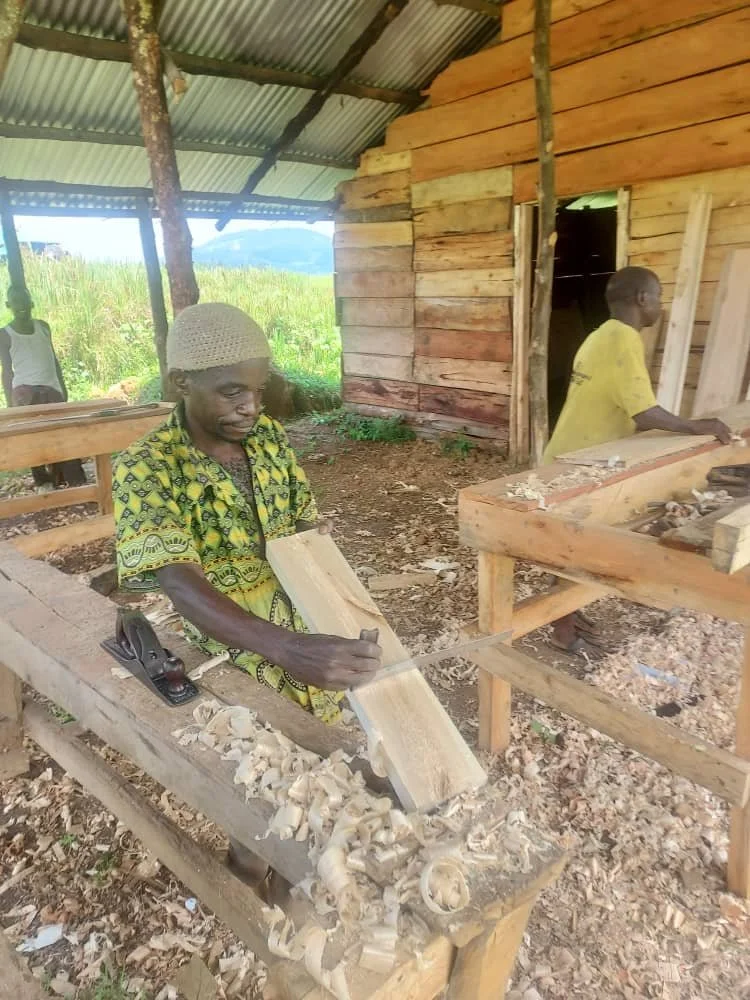Helping Batwa woodworkers help themselves through capital development
Non-profits working in developing countries have long used creative financing to help enable sustainable ways to address poverty. The Kellermann Foundation is no different, however, the challenge of helping the Batwa people adopt creative ways of sustaining themselves is a long-term project in which small victories are always celebrated. One such success has been a capital development program that started this summer with a conversation among Batwa settlement elders in a community called Kitariro.
The starting point almost a decade ago was a small group of Batwa men who had started building rudimentary furniture using simple hand tools. They had no electricity but soon adopted a roofed structure within the settlement and began making furniture. However, their hard work never paid off because it was always undercapitalized. How can a group of poor families that can barely afford food, have enough funds to acquire raw materials? Yet they pressed on with small amounts of assistance from various individuals.
In 2020, the global pandemic arrived and the woodworking shop ceased operation altogether as demand for these finished pieces dried up. Eventually, the open-air roofed structure that had served as their makeshift workshop was torn down. The wood and metal roof was repurposed for other buildings. But this past summer, a team from Missio Dei Anglican Church, working in tandem with the Batwa Development Program (BDP), brought a broad range of much needed new hand tools the woodworkers had been requesting. The team provided tools and ways to keep hand planes and saw blades sharp and even trained them on how to use a diamond stone and other implements. But the key to the project was capital development.
A conversation between the BDP, the woodworkers, and Missio Dei led by Rev. Brendan Kimbrough, centered on a woodworking shop restart. The men were asked, “Do you want to restart the woodworking shop? The response was a resounding “Yes!” Then they were asked, “Will you agree with the BDP to receive an advance for materials which you will repay from the proceeds of your sales?” There was much conversation among them for a minute or two, but the response finally came. “Yes, but we have no workshop to store tools or materials and no workbenches. Can you help us with those things as well?”
The Missio Dei team huddled up and prayed and spoke at length afterwards and agreed that a way would be found to fund those things, over and above the new tools that the team had brought them. So out of the generosity of the Missio Dei team and parish members, funds were raised to build the workshop as well as fund future projects.
Last month the construction of the workshop was completed and three workbenches were constructed. Using funds from the project, the Kitariro Batwa Woodworkers are already turning out doors and bed frames and other furniture that they will take to sell locally where demand is high.
This project empowered the workers with much-needed seed capital and the promise of more funding once profitable. This type of loan has not been used before, and the hope is that as the men work hard and sell their finished products locally, not only will they realize a profit, but they will receive something even more valuable—the economic empowerment and personal dignity one is awarded though their own diligence and craftsmanship.





